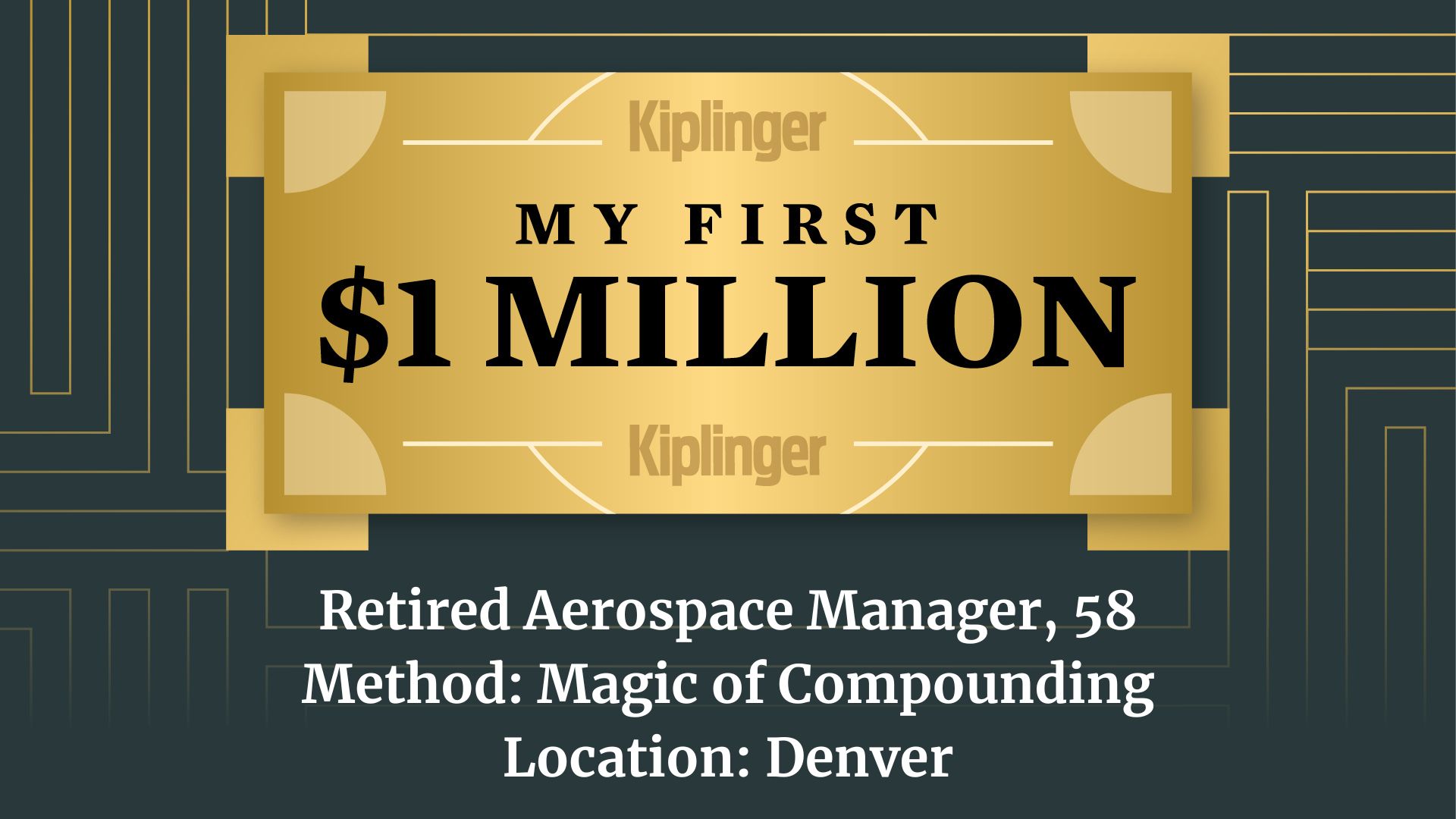What Is APR?
Knowing your APR is a good credit habit, even if you pay off your credit card balance every month.

Erin Bendig
Profit and prosper with the best of Kiplinger's advice on investing, taxes, retirement, personal finance and much more. Delivered daily. Enter your email in the box and click Sign Me Up.
You are now subscribed
Your newsletter sign-up was successful
Want to add more newsletters?

Delivered daily
Kiplinger Today
Profit and prosper with the best of Kiplinger's advice on investing, taxes, retirement, personal finance and much more delivered daily. Smart money moves start here.

Sent five days a week
Kiplinger A Step Ahead
Get practical help to make better financial decisions in your everyday life, from spending to savings on top deals.

Delivered daily
Kiplinger Closing Bell
Get today's biggest financial and investing headlines delivered to your inbox every day the U.S. stock market is open.

Sent twice a week
Kiplinger Adviser Intel
Financial pros across the country share best practices and fresh tactics to preserve and grow your wealth.

Delivered weekly
Kiplinger Tax Tips
Trim your federal and state tax bills with practical tax-planning and tax-cutting strategies.

Sent twice a week
Kiplinger Retirement Tips
Your twice-a-week guide to planning and enjoying a financially secure and richly rewarding retirement

Sent bimonthly.
Kiplinger Adviser Angle
Insights for advisers, wealth managers and other financial professionals.

Sent twice a week
Kiplinger Investing Weekly
Your twice-a-week roundup of promising stocks, funds, companies and industries you should consider, ones you should avoid, and why.

Sent weekly for six weeks
Kiplinger Invest for Retirement
Your step-by-step six-part series on how to invest for retirement, from devising a successful strategy to exactly which investments to choose.
While the best rewards credit cards can help you rack up cash back, points or miles on purchases, they usually come with high interest rates. Because of this, balances on your card can be challenging to pay off, especially if you don’t know your card’s annual percentage rate (APR).
According to LendingClub's recent research, 47.1% of cardholders carrying a balance don’t know their credit card APR, an alarming number, considering the average credit card interest rate was 24% as of February 2025.
So, what is APR? Here's what you need to know.
From just $107.88 $24.99 for Kiplinger Personal Finance
Become a smarter, better informed investor. Subscribe from just $107.88 $24.99, plus get up to 4 Special Issues

Sign up for Kiplinger’s Free Newsletters
Profit and prosper with the best of expert advice on investing, taxes, retirement, personal finance and more - straight to your e-mail.
Profit and prosper with the best of expert advice - straight to your e-mail.
What is APR?
The APR associated with your credit card is your card's interest rate. In other words, it's how much extra money you'll pay on any balance you don't pay off in full at the end of each billing cycle.
APR is typically stated as a yearly rate, and it can be fixed or variable. If you don't know your APR, you can find it in your credit card's terms and conditions. Or, when you review your statement it will appear on there.
Most credit cards operate on a variable rate, meaning the rate can change, often rising or falling in tandem with interest rates set by the Federal Reserve. When the Federal Reserve Board raises short-term interest rates, interest rates on credit cards and most other lending and savings products typically increase, like mortgages, home equity lines of credit, high-yield savings accounts and other loans.
Currently, there's mixed views on where interest rates go from here. The Federal Reserve ended 2024 with three rate cuts, but didn't follow suit at its January meeting. With talks of tariffs being imposed, the safe bet is there might be fewer rate cuts in 2025, especially if those tariffs increase inflation.
How does APR affect me?
If you’re carrying a balance on a credit card with a high APR, plan to pay it off as soon as possible without adding any new purchases, or else you'll be stuck with expensive interest payments and can end up in credit card debt.
If you are struggling to keep up with interest payments on your credit card, applying for a balance transfer credit card to pay off credit card debt can be beneficial. Balance transfer credit cards offer an introductory 0% APR for qualifying balance transfers.
The length of these introductory periods varies, but some of the best balance transfer cards allow you to avoid interest rates for up to 21 months. You can also check to see if any current cards in your wallet are offering balance-transfer promotions.
Keep in mind that with any balance transfer, if you don’t pay your balance by the time the promotion ends, any balance left over is generally subject to your card’s normal interest rate. And read the fine print — your balance could be subject to retroactive interest charges.
Use cash back incentives
Another way to tackle interest is to use your card for everyday purchases like groceries and utilities. Many credit card issuers offer higher cash back incentives when you use your card for travel expenses, grocery, dining out or shopping. To demonstrate, the Blue Cash Preferred® Card from American Express gives you 6% cash back on grocery purchases for the first $6,000 charged. Once you exceed this limit, it defaults to 1% back.
The key with this approach is to alter how you pay for budget items. Say you have a statement balance of $400, and if you don't pay that in full next month, then you'll have interest accrue. Instead of using your debit card for groceries and gas, use your credit card and charge these expenses. Once they clear, pay them off immediately.
This approach achieves multiple things: One, it helps you pay off more of your statement balance each month. Two, with the cash back rewards you earn, you could pay off interest quicker in the form of statement credits. Lastly, you're still spending within your budget, you're just altering the payment method you use.
Related Content
- What is a Good Credit Score?
- What Are Credit Card Hacks and Do They Work?
- Credit Score vs. Credit Report: What's the Difference?
Profit and prosper with the best of Kiplinger's advice on investing, taxes, retirement, personal finance and much more. Delivered daily. Enter your email in the box and click Sign Me Up.

Rivan joined Kiplinger on Leap Day 2016 as a reporter for Kiplinger's Personal Finance magazine. A Michigan native, she graduated from the University of Michigan in 2014 and from there freelanced as a local copy editor and proofreader, and served as a research assistant to a local Detroit journalist. Her work has been featured in the Ann Arbor Observer and Sage Business Researcher. She is currently assistant editor, personal finance at The Washington Post.
- Erin BendigPersonal Finance Writer
-
 The Cost of Leaving Your Money in a Low-Rate Account
The Cost of Leaving Your Money in a Low-Rate AccountWhy parking your cash in low-yield accounts could be costing you, and smarter alternatives that preserve liquidity while boosting returns.
-
 I want to sell our beach house to retire now, but my wife wants to keep it.
I want to sell our beach house to retire now, but my wife wants to keep it.I want to sell the $610K vacation home and retire now, but my wife envisions a beach retirement in 8 years. We asked financial advisers to weigh in.
-
 How to Add a Pet Trust to Your Estate Plan
How to Add a Pet Trust to Your Estate PlanAdding a pet trust to your estate plan can ensure your pets are properly looked after when you're no longer able to care for them. This is how to go about it.
-
 The Cost of Leaving Your Money in a Low-Rate Account
The Cost of Leaving Your Money in a Low-Rate AccountWhy parking your cash in low-yield accounts could be costing you, and smarter alternatives that preserve liquidity while boosting returns.
-
 This Is How You Can Land a Job You'll Love
This Is How You Can Land a Job You'll Love"Work How You Are Wired" leads job seekers on a journey of self-discovery that could help them snag the job of their dreams.
-
 We Inherited $250K: I Want a Second Home, but My Wife Wants to Save for Our Kids' College.
We Inherited $250K: I Want a Second Home, but My Wife Wants to Save for Our Kids' College.He wants a vacation home, but she wants a 529 plan for the kids. Who's right? The experts weigh in.
-
 4 Psychological Tricks to Save More in 2026
4 Psychological Tricks to Save More in 2026Psychology and money are linked. Learn how you can use this to help you save more throughout 2026.
-
 Why Your Home Insurance Might Not Protect You If Someone Else Lives There
Why Your Home Insurance Might Not Protect You If Someone Else Lives ThereLetting a relative stay in a second home or inherited property can quietly change your insurance coverage and leave you exposed to costly liability claims.
-
 My First $1 Million: Retired (at 57) Aerospace Senior Manager, 58, Denver
My First $1 Million: Retired (at 57) Aerospace Senior Manager, 58, Denver"Making $1 million was never a goal, but maybe it should have been. I simply wanted to be debt-free and never worry about money."
-
 5 Best Splurge Cruises for Retirees in 2026
5 Best Splurge Cruises for Retirees in 2026Embrace smaller, luxury ships for exceptional service, dining and amenities. You'll be glad you left the teeming hordes behind.
-
 Have You Aligned Your Tax Strategy With These 5 OBBBA Changes?
Have You Aligned Your Tax Strategy With These 5 OBBBA Changes?Individuals and businesses should work closely with their financial advisers to refine tax strategies this season in light of these five OBBBA changes.